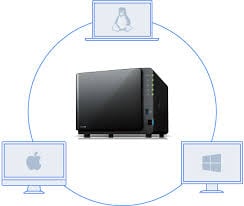this post was submitted on 28 Nov 2023
94 points (96.1% liked)
Linux
48413 readers
1206 users here now
From Wikipedia, the free encyclopedia
Linux is a family of open source Unix-like operating systems based on the Linux kernel, an operating system kernel first released on September 17, 1991 by Linus Torvalds. Linux is typically packaged in a Linux distribution (or distro for short).
Distributions include the Linux kernel and supporting system software and libraries, many of which are provided by the GNU Project. Many Linux distributions use the word "Linux" in their name, but the Free Software Foundation uses the name GNU/Linux to emphasize the importance of GNU software, causing some controversy.
Rules
- Posts must be relevant to operating systems running the Linux kernel. GNU/Linux or otherwise.
- No misinformation
- No NSFW content
- No hate speech, bigotry, etc
Related Communities
Community icon by Alpár-Etele Méder, licensed under CC BY 3.0
founded 5 years ago
MODERATORS
you are viewing a single comment's thread
view the rest of the comments
view the rest of the comments

How many users are there?
Is there a chance that the computer will boot without access to the NAS (aside from failure conditions).
Are you doing anything with ownership to prevent reading, or changing, sensitive files?
This is a home NAS with one user (myself) on this Linux client. Other clients will be Windows for other users.
My NAS user has full rw permissions across the NAS shares (but not admin privs). I’m not super comfortable with this config as it strike me as too permissive to mount on the home directory. Would love to hear better approaches.
Yes, there is a chance the NAS can be down when booting the Linux pc.
Well, with multiple users you'd need to decide what the use case is for the whole NAS and then work down from there.
Are you sharing everything in the NAS with everyone? In that case your NAS setup is fine, just a little permissive, because with RW to everything, the end users can break everything.
If it were me setting this up, I'd have different mount points for different users. 1 mount for each user that only they can read/write (not even you should be able to see it), and 1 mount that everyone can read/write, maybe if you want to go a little bonkers, 1 mount that everyone can read, but only you can write to.
Then you'd mount those three to separate mounts in your /media, and you can link them from your home directory for specific use cases.
Obviously this is completely overkill, but you can take the parts that sound appealing to you and ignore the rest.
There aren't many options... you can either modify the share or you cannot. 🙂 Pick one.
I set up the mount points in configuration as dynamic NFS volumes and added Bookmarks to nautilus. You can get to the volume either with cd command or right-click -> terminal here. You can shut down the NAS and only lose the share, which returns when the system goes online.
This is much better than WbDAV, which is fine for simple sharing or for devices that can't handle NFS easily like Android phones.